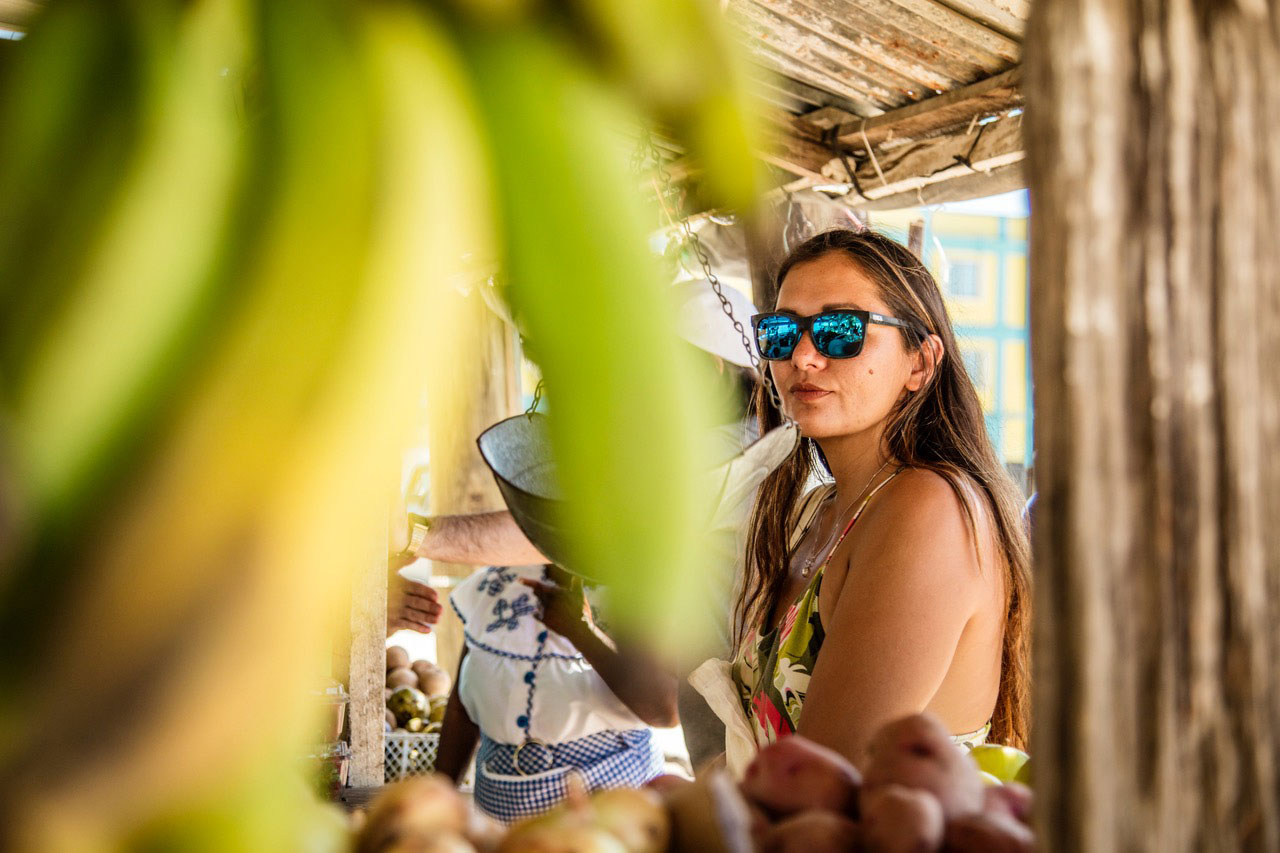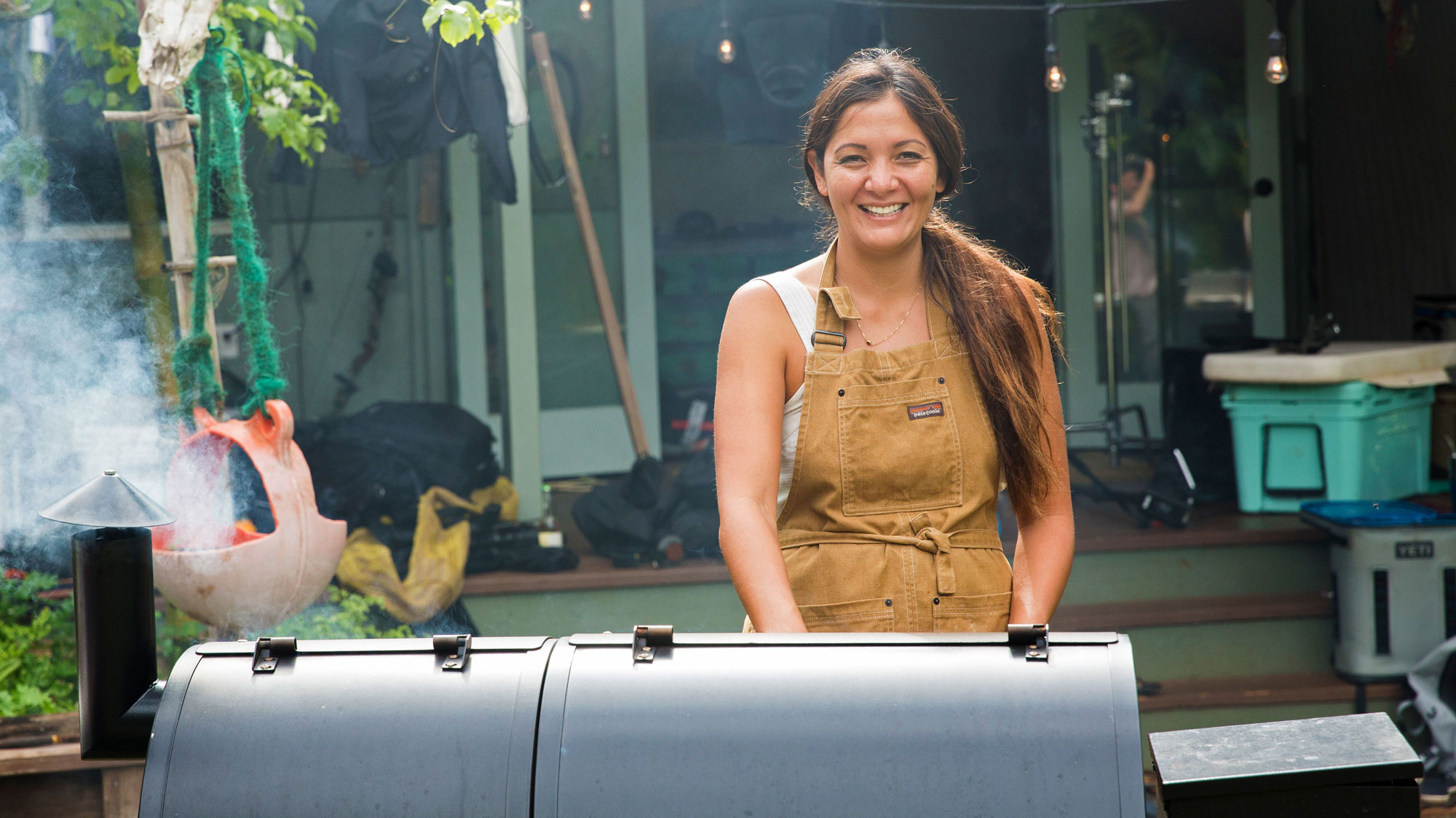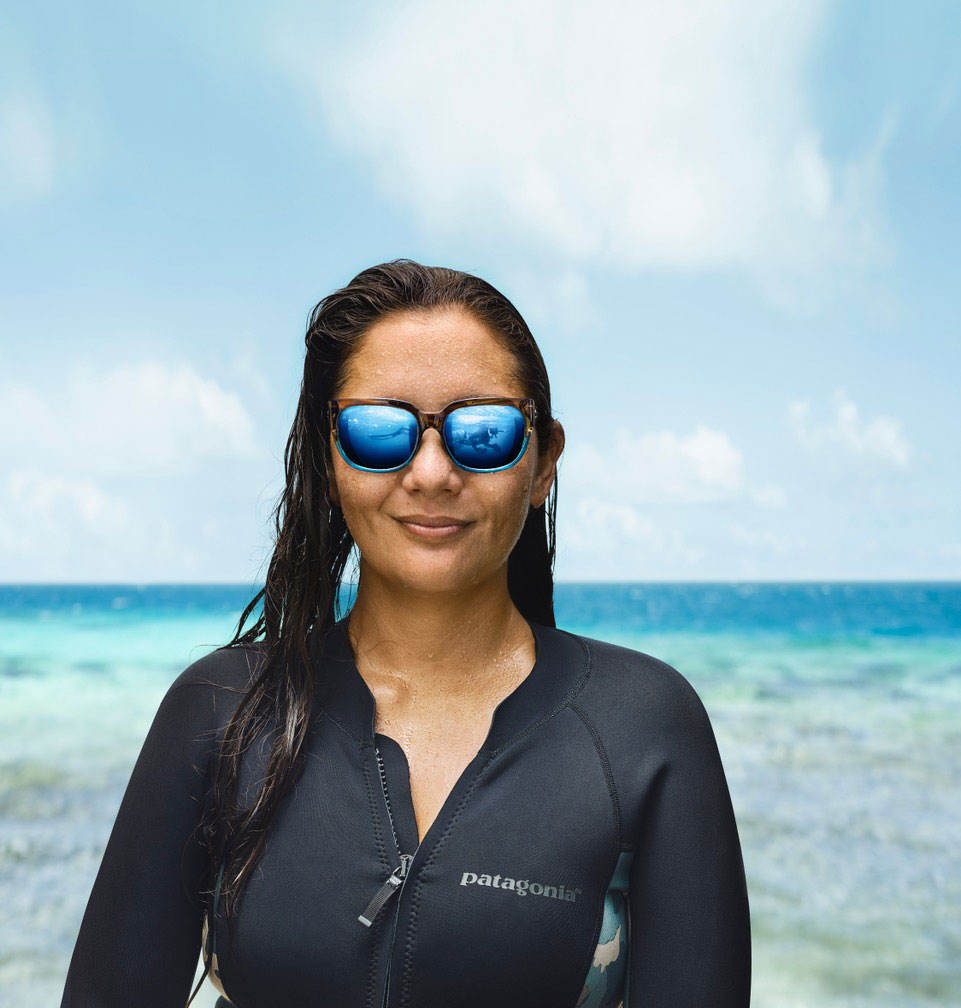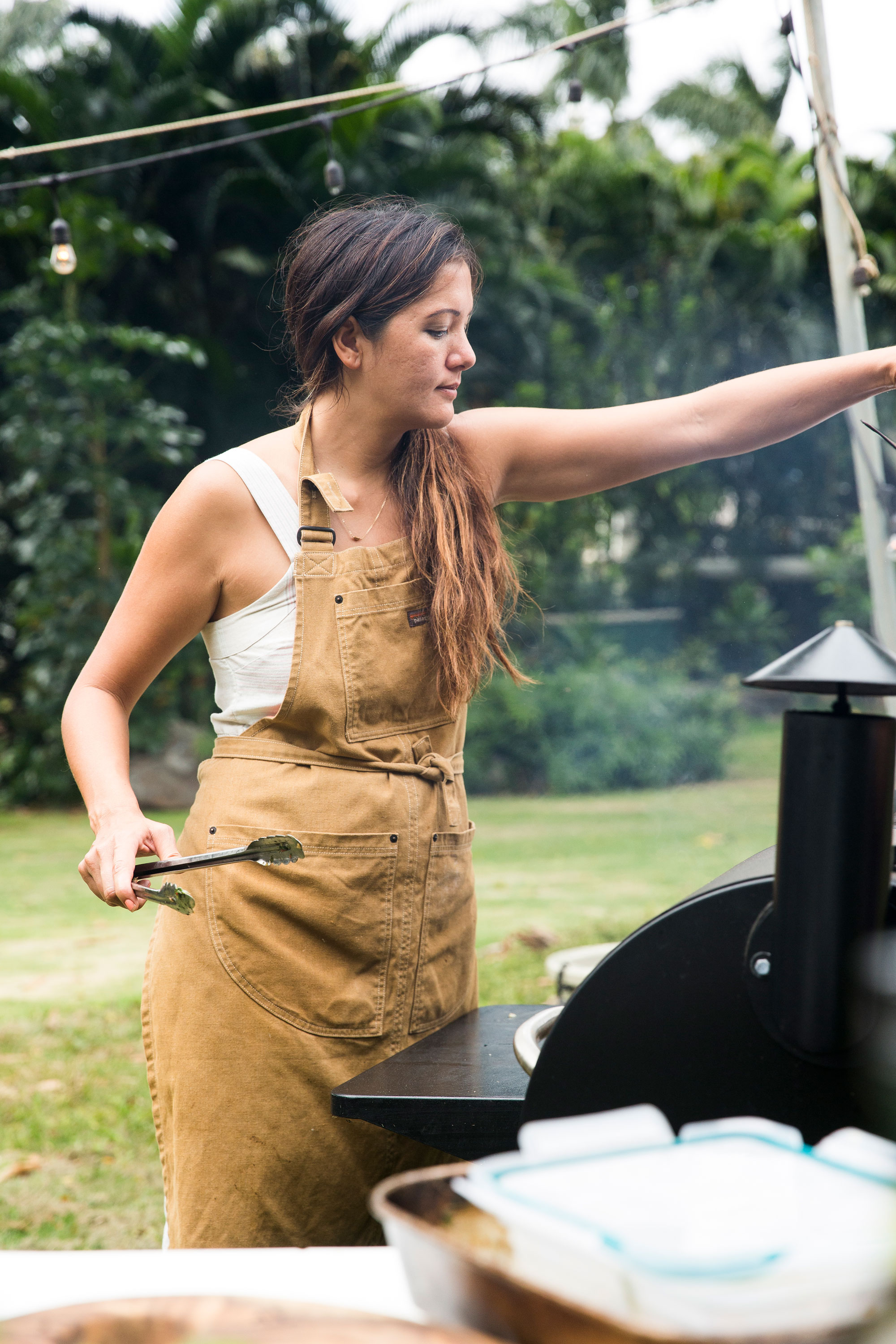Kimi Werner didn’t have a conventional childhood. During her formative years, her family was tight on money and her father fished as a means of putting food on the table. Werner would accompany him on dives and float on the surface as he dove to the depths, bringing back her favorite meals. He brought her along, he jokes, because he couldn’t afford a babysitter.
While her father gave her an introduction to hunting, it was her mom that drilled into her the importance of respecting resources and to never take more than you need. Werner’s mom cleaned the fish to ensure there was as little waste as possible: she’d use the meat for meals, the bones for soup, and the blood, scales, and guts would return to the earth to fertilize the garden.
“I was raised by a hunter and a hippie,” Werner tells ASN. “My dad taught me the hunting part while my mom made everything full-circle in terms of sustainability.”
By the time Werner was eight years old, her parents’ careers had taken off and they left behind their beach shack, and with it, the need to depend on the ocean and land for food. They moved to a subdivision and began buying food from grocery stores. At first, Werner longed for the simple days of her childhood, but ultimately she grew used to the conveniences of a conventional society.

By the time Werner was 18, her survivalist days were long behind her and she had moved to Oahu to pursue a degree in culinary arts. After graduating, she began working in the restaurant industry.
A few years into her career, Werner was feeling unfulfilled and unsatisfied. Despite the fact that Hawaii is one of the most bio-diverse places in the world, she was working day in and day out with ingredients that had been flown in overseas.
“More than anything, I missed connection and meaning,” says Werner. “I started looking at memories from my early years – those days when we were supposedly poor were the days when I felt like we were the richest and thriving.”

So, Werner decided it was time for a change. At the age of 24, she picked up a spear for the very first time.
Today, Werner is an award-winning artist, has earned a title as the U.S. National Spearfishing champion, is a public speaker, and was featured in Patagonia’s documentary “Fishpeople.”
As Werner logged more time in the water, she became more connected to not only her roots but to human roots and the essential role food and the environment play in our lives. She began examining the major sources humans rely on for food and our impact on the environment.
“We like to think we’re not a part of this ecosystem because we’ve conquered it,” Werner explains. “But we are animals in this animal kingdom and we’re still a part of nature.”
Werner began encouraging people to ask questions about their food: How was this grown? How was this raised? What kind of life did it have? What kind of pesticides, antibiotics, treatments, and processes were used to get this plant or animal to my plate?

“Because if we’re not asking questions, then we’re not examining our footprint.” she says.
When Werner first began her journey with spearfishing, she sourced her food from the ocean, her garden, and the local supermarket. As she grew more skilled in the sport, she began sharing her extra catch and in turn, came home to chicken eggs, avocados, or venison on her porch. As Werner established a community of sharing, her taste buds changed and she made less and less trips to the store.
“When you really understand the story of something and where it comes from, your taste buds can’t help but appreciate it too,” Werner tells ASN.
In June of 2019, Werner announced via social media that it had been over six years since she’d purchased meat from the store.
Initially, Werner started eating locally grown and raised food, not for environmental reasons, but because her taste buds were changing and she was saving money. As the years went by, she began to deeply appreciate the lifestyle and learned that the majority of the land animals she was consuming were invasive and detrimental to the island – eating them was helping the natural ecosystem.
Werner recognizes that not everyone has access to the same resources that she does, so her goal is to never put anyone down but to simply provide an example of a way to consciously consume meat. For those that purchase their meat, Werner believes organic products are no longer sustainable enough. Instead, she believes people should look for meat that was raised using regenerative organic farming.

According to Regeneration International, regenerative agriculture “describes farming and grazing practices that, among other benefits, reverse climate change by rebuilding soil organic matter and restoring degraded soil biodiversity – resulting in both carbon draw-down and improving the water cycle.”
Werner believes the practice – alongside renewable energy and preserving public lands – are the keys to saving our planet.
“Our existence comes at a cost,” says Werner. “Every human being is going to have some footprint. I am consciously examining my choices and trying to make the best decisions that I can – that’s the best that we can all do.”
The post World-Renowned Spearfisher Kimi Werner Is Pro Meat and Pro Environment appeared first on Men's Journal.
Comments are closed.